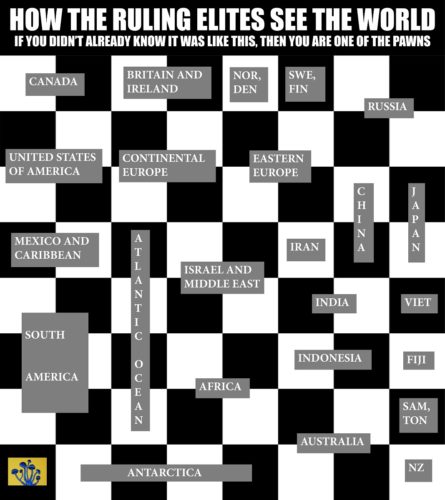
The medical establishment likes to give the impression that they are the authority on mental illness and that they know what they’re talking about. What we used to call “being mad” is now known as psychosis, which even has a nice, neat clinical definition: it requires a “loss of contact with reality”.
The difficulty with this definition – which no clinician will admit – is that no-one knows what reality even is. Simple logic will tell you that there are as many potential interpretations of what reality is as there are perspectives upon it to take.
And these are infinite.
So the definition of psychosis has become “loss of contact with what is commonly agreed upon to be reality”.
At this point one can continue to ask if it is legitimate, but it is worth noting that this no longer matters. Once the balance of political power supports the enforcement of a medical paradigm in which a loss of contact with what is commonly agreed upon to be reality is considered psychosis, that is what psychosis will be.
Even so, one must ask the question: how does the psychiatrist know what is commonly agreed upon to be reality?
The doctor can only know about reality in so far as they have experienced it, and chances are that they have experienced it from a biased perspective for reasons that are not admitted to because of politics.
For instance, the average doctor is a decidedly middle-class person. It takes a highly unusual academic aptitude to qualify. It’s unlikely that any given doctor has seen reality from the perspective of a very poor person, or of a mentally ill one.
So it’s apparent that whatever is commonly agreed to be reality is whatever the lowest common denominator considers it to be. And mostly all we can agree on is that the physical world is real – because, after all, it looks like it – so anyone who disagrees with this is psychotic.
Mostly we can agree on the realities of the social world – don’t hit people, kick them, spit or swear at them etc. Other social realities are not so clear.
For example, is homosexuality a mental illness or not? There was a time, only a few decades ago, when psychiatrists who considered themselves “experts” in psychosis and mental illness were comfortable in diagnosing their homosexual patients as mentally ill.
If one answers that the criminalisation of homosexuality was obviously a mistake and now we know better, what about the use of medicinal cannabis? Because a majority of psychiatrists still consider medicinal cannabis use for the alleviation of mental illness to be an “abuse” that leads to psychosis, and this opinion is no less ignorant, arrogant and boneheaded than the old ones about homosexuality.
Cannabis use can lead to psychosis, but not for the reasons they think it does. Cannabis wakes you up. Psychosis is little more than being prematurely woke, and panicking thereby. Cannabis makes you aware of things that you had previously been too stupid to be aware of. And this can cause psychosis in the young and in the dull.
In so far as people are dumb, anyone becoming suddenly woke is going to have what the still-dumb would call a “loss of contact with reality”. In fact, it’s hard to see how this is avoidable, given that the opinions people hold before they become woke are inevitably those of the herd that they have absorbed out of pliability.
Anyone who, for the first time, learns a truth that the majority do not already know risks being seen as a psychotic, because the majority have be conditioned to treat anyone waking up from mass delusions as if they are sick in the head.
In cases of purely technical knowledge, this is no big deal. In cases of politics or religion, or, even more crucially, of reality itself, it is a big deal.
Anyone who has read Plato’s Republic will not only understand the analogy, but they will also realise that woke people realised all this over 2,000 years ago, and warned anyone capable of listening in texts like Republic.
The famous analogy of the cave warned those already on the path to waking up that their superior insight will not and can not be accepted as such by the plebs.
So anyone who has been awoken to a higher order of reality by the original perspectives of thought offered by certain psychoactive drug experiences ought to know, right from the beginning, that these perspectives will never be accorded credibility by a medical establishment that is absolutely stuffed full of paid-up worshippers of the cult of materialism.
Any belief in a reality beyond the material is a mental illness in the current paradigm of the Western medical establishment.
Whereas the ancient Hindus, the ancient Egyptians and the ancient Greeks all came to a similar insight over 2,500 years ago – that the primary basis of reality is consciousness and that the material world, or Maya, is an illusion – one cannot simply expect this insight to be acknowledged by our cultural guardians of how reality ought to be interpreted.
They are materialists, and therefore anyone disagreeing with materialist dogma will be considered mentally ill. Psychosis is therefore not really a “loss of contact with reality” but “disagreeing with the materialist clinician about what reality is”.
So for the rest of us it may be a matter of bunkering down until this materialist craze blows over and those who have seen beyond can speak freely again.



